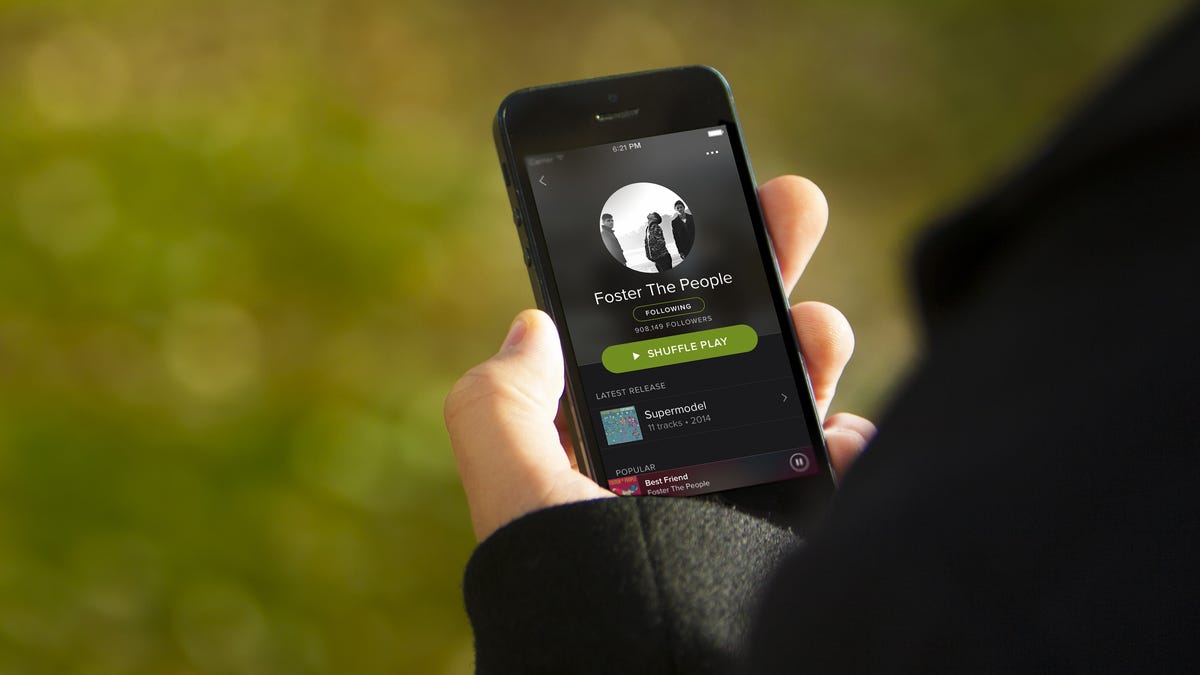Apple Music vs. Spotify: Guess who's winning now
New subscriber figures suggest Apple can't catch up, as both music services jolt forward at the same rate.

Apple wants to wow audiences over the progress of its music service, but perhaps it's Spotify that really deserves your slow clap.
Cupertino, California-based Apple boasted at its iPhone 7 launch event on Wednesday that its Apple Music subscription-streaming service had accumulated 17 million paying members since it launched in June 2015. It added 2 million in less than three months.
That's a peppy uptick, but some quick math indicates Apple and Spotify are adding subscribers at about the same rate. And thanks to its sizable lead, Spotify is outstripping Apple in sheer numbers.
The figures reaffirm the notion that more consumers are opting to stream music buffet-style versus buying songs a la carte. That's partially thanks to the heavy marketing Apple pumped into its own subscription music service. The numbers also offer new perspective on a horse race between two companies that's grown bitter this year.
Apple said its streaming service has risen to 17 million subscribers. Its growth rate, though, isn't strong enough to catch it up with Spotify.
Spotify and Apple both updated their subscriber figures in the last two weeks, and they both released their member counts roughly five months earlier, giving a snapshot of how much each service grew during approximately the same time period.
Spotify added 9 million members to reach more than 39 million in the five months from late March through late August. Apple Music gained 4 million subscribers to reach 17 million in the four-and-a-half months since late April.
That means both Apple and Spotify grew their membership about 30 percent over roughly the same stretch of time. But because Spotify already had a much bigger base of subscribers, the actual number of people who signed up was more than double the number who joined Apple's service. If Apple wants to close the gap and overtake Spotify, it needs to start growing faster than its rival.
More from Apple's event
"The reality at the moment is Spotify is winning," said Russ Crupnick, analyst and managing partner at MusicWatch. In addition to having the highest total of paid listeners and the strongest net additions, Spotify boasts users who tend to spend more time on its platform than Apple Music subscribers spend on Apple's service, according to Crupnick's research.
Sweden-based Spotify launched nearly eight years ago, compared with Apple Music's late arrival in the market a year ago. Apple Music's rollout also faced early hiccups, including bugs that wrecked some customers' iTunes libraries.
Spotify has another substantial advantage: It's the only service allowed to stream free, on-demand tunes with advertising. In response, competitors like Apple Music and Tidal lean on exclusives, like Apple's lock on Frank Ocean's album "Blonde" and Tidal's hold on the Beyoncé album "Lemonade." That's led to reports that Spotify is retaliating against artists who grant exclusives elsewhere.
Because the recording industry insisted that most paid services charge the same price for comparable catalogs of millions of songs, the competition between streamers has grown more cutthroat this year. Exclusives represent one of the key ways the services are setting themselves apart from the pack.
But the streaming-music market still has "much more field to plow," Crupnick said. "It's way too early to pick a winner."

